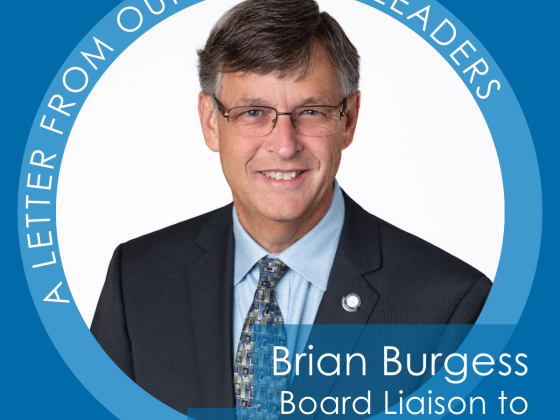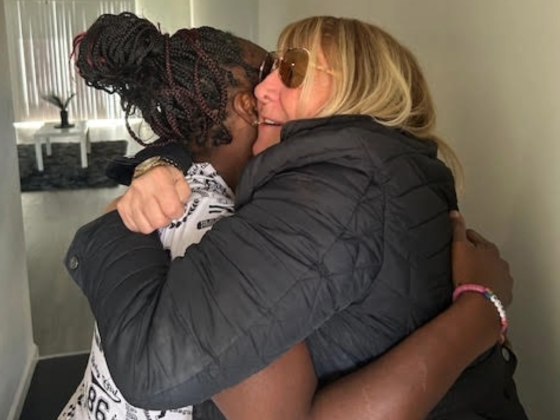By Timothy Williams, Senior Director of Formation and Leadership Development
The church calls the laity to “fulfill their prophetic mission by evangelization” which has “peculiar efficacy because it is accomplished in the ordinary circumstances of the world.” [CCC, 905] Our Vincentian vocation, our special way of living our faith, also defines our special way of evangelizing.
And what is that way? It is plainly true that our visits to the neighbor, particularly the first visit, are not an appropriate time to evangelize by word. The neighbor is in a very vulnerable position, and while likely to listen very politely to what we say, they are equally likely to resent that we have made them feel, despite our best intentions, that coming to Mass may be the price of our assistance.
As the first Rule put it, “All fervor is not holy or accepted of God. All times are not suitable for instilling new and Christian teaching into the heart. We must know how to wait for God’s own time, and to be patient as He is.” [1835 Rule, Intro] We evangelize first and foremost not by preaching, but by the witness of our actions; by our selfless works, performed for love alone.
Blessed Frédéric made this same point, explaining that while we hope to share the saving word of Christ with the poor, “the poor are hungry, so we must first give them bread.” [1457, Report, 1834] Saint Vincent similarly advised his missioners (whose mission was to evangelize) to “be more reserved in their presence, more humble and devout toward God, and more charitable toward your neighbor so that they may see the beauty and holiness of our religion and be moved to return to it.” [CCD VIII:208]
Naturally, we do not hide who we are or why we are visiting, and one of the ways we bear witness to our faith is to pray to God for the neighbor. That is why it will often be the case that as we form relationships based on trust and friendship, it will be the neighbor that starts the conversation about our faith, precisely because our charity, our love, has stirred “irresistible questions” in their hearts. [EN, 21]
Though most of our visits begin and end with material assistance, we are never simply bearers of bread, because, as Frédéric reminds us, “Charity does not consist so much in the distributing of bread as in the manner it is distributed.” [1457, Report, 1834] We seek first to attain holiness, for without that how can we lead others to it? We pray that our kindness, friendship, and love will transform the hearts of the neighbors we serve, just as their suffering transforms ours.
In our annual reports, we record the assistance our Conferences provide. We hold in our hearts the memory of tears we have dried and hope we have shared. But we will never know how many souls our works may have saved. That is up to God, not us, and “We are not commissioned to perform the good which it is out of our power to effect.” [1835 Rule, Intro]
Contemplate
Is my zeal for the salvation of souls tempered by my humility and faith that God is working through me?
Recommended Reading
This week, let’s watch a video about Our Vincentian Virtue of Zeal




Suppose our home visit team shows up at a house where material resources and cash are needed, which will necessitate writing a twinning. We enter the house and introduce ourselves as being from SVdP, right out of the local Catholic Church here in your own neighborhood. We go on to say that St. Vincent dePaul was a real person, although he lived in the 1600s, and he did the exact same thing we’re doing, which is bringing food to people. We say a short prayer, which we have already spoken about on the initial phone call. We present our food, vouchers, and printed information, and then write the twinning. Every twinning, at the end needs a Plan Going Forward. So what if I say this (and full disclosure, I already have):
“Mr. Smith, as your Plan Going Forward, it looks like you have a new job. I’m happy to write that on your request. But no matter what kind of job we get or how much stuff we have, the only way any person can really go forward is to be a better and more virtuous person today than he was yesterday. But to do that, we need a standard of ultimate goodness and virtue. That standard is God. And he sent His son Jesus Christ as the example for us to follow. No one ever lived like Him. No one ever spoke like Him. No one was ever so compassionate to us sinners as He was. No one ever welcomed the outcast as He did. And each of us on Earth can have a spiritual connection with God and Christ whenever we want it. That connection is through prayer. That one-to-one relationship puts God within us.
Now that we have this one-to-one relationship, we have a foundation to improve ourselves every day. Each of us can now ask himself ‘Is there something that you’re doing that you know – that YOU KNOW is bad for you, that you could change?’
But even with our one-to-one relationship it’s hard, so hard, to improve every day. So what do we do? We surround ourselves with other virtuous people, and we inspire each other, and encourage each other, and set an example for each other, and that keeps us on the track. We pray for and with each other. We form a congregation. That congregation is the Church. Our one-to-one relationship through prayer keeps God within us, and our congregation and church keep God around us. Within us and around us. You have to have both.
Here is a map of all the Catholic and Christian churches in our neighborhood. You are invited to any one of them. We have our small differences, but these are the important things we all believe.
-We believe that an intimate relationship with God is real.
-We celebrate family.
-We believe fatherhood is important.
-We honor women.
-We give our best to our children.
-We believe there are universal truths that need to be protected.
-We admit our sins and own up to them.
-And finally, we live out our beliefs.
I would think a lot of people would want to get in on some of that.
And so Mr. Smith, I’m asking you if I can write on your request that as your Plan Going Forward you will start your new job AND pray to God for patience and strength any time you need it. You can say yes or no – it won’t affect the outcome of this request, though it’s bound to have a good outcome going forward in your life. And I won’t write it unless you’ll really do it. So what do you say?”